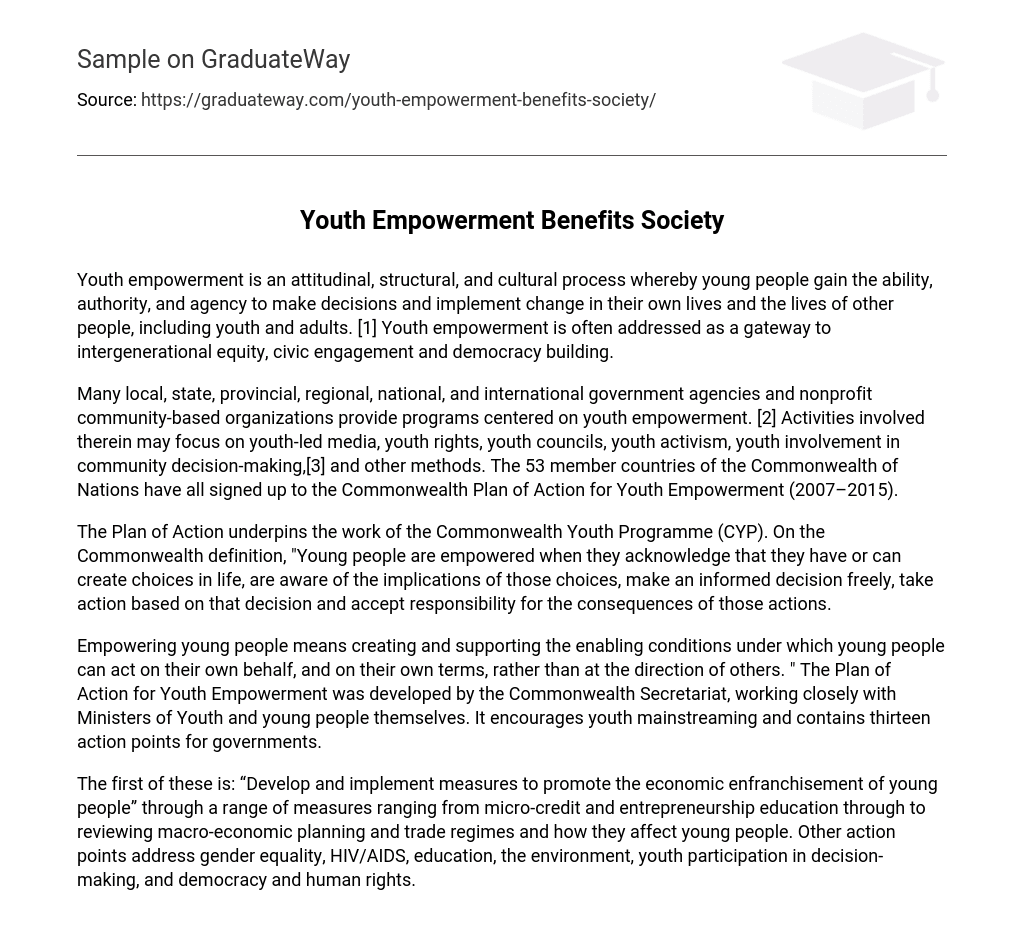Youth empowerment is an attitudinal, structural, and cultural process whereby young people gain the ability, authority, and agency to make decisions and implement change in their own lives and the lives of other people, including youth and adults. [1] Youth empowerment is often addressed as a gateway to intergenerational equity, civic engagement and democracy building.
Many local, state, provincial, regional, national, and international government agencies and nonprofit community-based organizations provide programs centered on youth empowerment. [2] Activities involved therein may focus on youth-led media, youth rights, youth councils, youth activism, youth involvement in community decision-making,[3] and other methods. The 53 member countries of the Commonwealth of Nations have all signed up to the Commonwealth Plan of Action for Youth Empowerment (2007–2015).
The Plan of Action underpins the work of the Commonwealth Youth Programme (CYP). On the Commonwealth definition, “Young people are empowered when they acknowledge that they have or can create choices in life, are aware of the implications of those choices, make an informed decision freely, take action based on that decision and accept responsibility for the consequences of those actions.
Empowering young people means creating and supporting the enabling conditions under which young people can act on their own behalf, and on their own terms, rather than at the direction of others. ” The Plan of Action for Youth Empowerment was developed by the Commonwealth Secretariat, working closely with Ministers of Youth and young people themselves. It encourages youth mainstreaming and contains thirteen action points for governments.
The first of these is: “Develop and implement measures to promote the economic enfranchisement of young people” through a range of measures ranging from micro-credit and entrepreneurship education through to reviewing macro-economic planning and trade regimes and how they affect young people. Other action points address gender equality, HIV/AIDS, education, the environment, youth participation in decision-making, and democracy and human rights.





